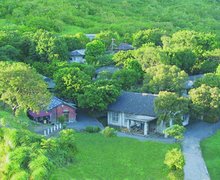March 14, 2007
Culture Center of Taipei Economic and Cultural
Representative Office in the United States
901 Wind River LaneGaithersburg, MD 20878
FAX: (240) 235-5410
Dear Sir/Madam:
We are writing to you to express our grave concern over the proposed forcible eviction of the residents of Lo Sheng Hospital in Taiwan from the place that has become their home as well as the proposed complete destruction of this internationally significant site in the history of leprosy.
IDEA is the largest international advocacy organization and network of support for individuals whose lives have been challenged by leprosy, also referred to as Hansen’s Disease. Our leadership is largely made up of individuals who have themselves had this disease.
Last year, IDEA was granted Special Consultative Status with the Economic and Social Council of the United Nations and, as such, can testify before the UN Human Rights Commission on matters of great concern to us.
The forced displacement from their homes of people who were first separated from their families due to society’s fear of leprosy and are now facing a second displacement because land rights are being given priority over human rights, is an issue that we plan to bring before the UN Human Rights Commission.
Prior to the advent of a cure for leprosy, people throughout the world were forcibly separated from their families and isolated in hospitals far removed from society.
This was done for the supposed protection of society at great cost to the lives of the individuals and their families. In fact, in some cases, whole family lines came to an end if an only child had leprosy.
Now that the land that many of these hospitals are located on has become valuable, plans are made for the use of the land that does not take into consideration the ethical and humanitarian issues surrounding the repeated displacement of people from the places that have become their homes.
Many countries throughout the world have recognized the historical significance of the leprosy hospitals where people have been isolated as well as the rights of individuals to live out their lives in the places that have become their homes. This has resulted in creative efforts to develop adapted use facilities that work to benefit society in many ways and also provide for preserving the history and the lifestyle of individuals living in these places (please see attachment for examples of some of these).
A panel discussion will be held on this issue at the next International Leprosy Congress to be held in Hyderabad, India in January, 2008. The residents of Lo Sheng have already been invited to designate a representative to serve on the five-member panel that will lead the discussion. They have accepted this invitation.
We fervently hope that the government and people of Taiwan will recognize that the residents of Lo Sheng are a national treasure. Through their lives, they have the ability to teach present and future generations about issues fundamental to the promotion of peace and justice in our world. They have undergone separation from that which was most dear to them yet do not harbor revenge or hatred. They simply request that their history be honored and that they be allowed to remain in their home.
We hope that we can all work together in a unified effort to ensure that this chapter in Taiwan’s history will be remembered as an example of justice and humanity rather than an example of the use of force and coercion against elderly individuals who gave up their families and their futures a lifetime ago in order that society could feel safe.
Please feel free to contact me if you have any questions.
Sincerely,
Anwei Skinsnes Law,
M.P.H.International Coordinator,
IDEACoordinator, Oral History Project, International Leprosy Association
Global Project on the History of Leprosy.
2007年3月30日 星期五
訂閱:
張貼留言 (Atom)

沒有留言:
張貼留言